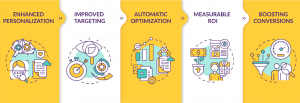The Evolution of CRMs and the Rise of AI
In the mortgage industry, where transactions are inherently complex and often personal, efficient client relationship management is paramount.AI-Integrated Mortgage CRM Systems, which combine artificial intelligence with traditional systems, have revolutionized this landscape. Historically, this was achieved through direct interaction with customers on a one-to-one basis. While this practice provided highly personalized service, it was somewhat inefficient and difficult to scale.
As the mortgage industry evolved, CRMs became prevalent within mortgage lending operations. Customer Relationship Management (CRM) systems, serving as consolidated databases, streamlined client interactions, communications, and data management. However, with the global shift towards digitization, it became evident that these traditional CRMs needed to evolve. Enter Artificial Intelligence (AI) — a technology that has rapidly integrated itself into the CRM landscape, bringing with it a revolution in efficiency and personalization.
The Benefits of AI in CRMs: Efficiency, Personalization, and Scalability
Efficiency
In a sector as dynamic as the mortgage industry, swift decision-making is key, especially when companies deal with large numbers of borrowers. AI augments CRMs by automating routine tasks, reducing errors and inefficiencies from manual processes. This allows for quicker access to insights and, consequently, expedited decisions. With AI, CRMs can analyze vast datasets quickly, providing mortgage operations and loan officers with real-time, actionable data.
Personalization
No two mortgage clients are identical. Each comes with a unique set of requirements and expectations. Through AI, CRMs can now analyze individual client data and interaction patterns. This facilitates the customization of practically every communication with the customer, resonating more effectively with each client. From sending personalized reminders to suggesting mortgage options based on a client’s specific financial profile, AI ensures each interaction is optimized for maximum impact.
Scalability
Growth is the ultimate goal of any business. However, with growth comes increased data and client interactions. Traditional CRMs, when faced with a large volume of data, could falter, leading to inefficiencies. AI-driven CRMs, on the other hand, are built to scale. They handle increasing data volumes effortlessly, providing consistent quality during client interactions regardless of the scale of operations.

Enhancing Customer Support: AI Chatbots in Mortgage CRMs
Introduction to AI Chatbots
In an age of instant gratification, customers seek immediate answers. AI chatbots have emerged as a solution, providing round-the-clock assistance. These virtual assistants, integrated into CRMs, can respond in real-time, answering frequently asked questions, assisting with the application processes, and scheduling meetings with loan officers.
Benefits of Using Chatbots
One cannot understate the importance of 24/7 availability in the mortgage sector. Chatbots provide instant, accurate answers to questions and gather valuable customer data during interactions. This data is critical in refining future interactions, ensuring customers receive precise and relevant information. Moreover, chatbots help reduce operational costs by handling a significant volume of inquiries without human intervention.
Real-world Examples
In the mortgage space, chatbots have repeatedly demonstrated their value. Whether it’s assisting first-time homebuyers in understanding the nuances of their mortgage options or helping existing clients with refinancing questions, chatbots have successfully streamlined client interactions, vastly improving customer satisfaction rates.
AI and Personalized Marketing: Redefining Mortgage Campaigns
AI-Integrated Mortgage CRM Systems
Marketing in the mortgage industry has undergone a transformation with the integration of AI. By analyzing customer behavior, preferences, and financial backgrounds, AI-driven CRMs can formulate targeted marketing campaigns that resonate with specific audience segments.
Utilizing Customer Data
AI systems excel at pattern recognition. By processing customer interaction data, AI identifies trends, preferences, and potential areas of interest. This enables the creation of highly personalized marketing campaigns that reach the right audience and convey the right message.
Benefits of Campaign Analytics
Post-campaign analysis is as crucial as the campaign itself. AI-enhanced CRMs provide detailed analytics, measuring campaign success and identifying areas of improvement. The real-time feedback loop allows marketing strategies to be continually optimized for maximum effectiveness.

The Vital Role of Human Expertise in Mortgage CRMs
Tasks Machines Can’t Replace:
While AI has made tremendous inroads into the mortgage industry, there remain aspects of the lending process that technology cannot emulate: The human element – empathy, relationship-building, and nuanced decision-making – are irreplaceable. Whether it’s understanding a client’s unique situation, reassuring them during challenging times, or navigating complex negotiations, the human touch plays a pivotal role.
Scenarios Where Human Touch Remains Necessary:
Consider a scenario where a couple is buying their first home but faces uncertainty due to fluctuating credit scores. An AI system could provide options based on data alone, but it’s the human loan officer who can empathize, offer tailored advice, and possibly devise a plan to make homeownership achievable. Similarly, in cases of refinancing or loan restructuring, human expertise aids in navigating intricate scenarios that require more than just data processing.
Harmony Between AI and Humans:
The goal isn’t for AI to replace humans but to complement them. By handling data-heavy tasks, AI allows mortgage professionals to focus on relationship-building and advisory roles. It’s a partnership wherein AI provides the tools and insights while humans offer the context, understanding, and personalized touch.
AI in Action: Practical Applications in Mortgage CRMs
Deeper Dive into AI Applications
Beyond chatbots and marketing, AI’s integration in CRM systems has led to several groundbreaking applications. These range from predictive analytics that forecast market trends to automated workflows that ensure every client interaction is timely and relevant.
Case Studies:
One notable implementation is AI-driven lead scoring. By analyzing potential leads based on behavior, financial history, and other parameters, AI-Integrated mortgage CRM systems can prioritize those most likely to convert. Similarly, predictive analytics tools can forecast market fluctuations, enabling loan officers to provide timely advice to clients about rate locks or refinancing opportunities.
Enhancing Loan Officer Efficiency:
Routine tasks, such as data entry or appointment scheduling, are now being automated. AI aids loan officers by reducing their administrative burden, allowing them to focus on what they do best: advising clients and closing deals.

Challenges and Opportunities in AI-Integrated CRM Systems for Mortgages
As the mortgage industry evolves,AI-Integrated Mortgage CRM systems present a range of advantages. However, it’s crucial to examine the unique challenges and opportunities that arise when integrating AI into your mortgage CRM system:
Challenges
Data Privacy and Security:
In the mortgage landscape, where sensitive financial information is paramount, AI-driven CRM systems must address data privacy, security, and regulatory compliance. Adhering to strict data protection measures and complying with industry regulations is essential to build trust and mitigate potential legal concerns.
Implementation Costs:
Especially for small and medium-sized mortgage operations, the initial investment in AI technologies can be significant. However, innovative solutions like BNTouch, tailored for the mortgage industry, provide cost-effective solutions, helping mortgage businesses overcome this financial hurdle.
Staff Training:
The introduction of AI-powered features into your mortgage CRM system may require training your staff to effectively utilize these new capabilities. Making sure that your team receives comprehensive training, support, and resources will provide a seamless transition and maximize the benefits of AI-driven CRM systems in the mortgage field.
Opportunities
Enhanced Customer Engagement:
AI-Integrated Mortgage CRM Systems open the door to deep customer insights within the mortgage industry. By analyzing client preferences, predicting market trends, and tailoring communication strategies accordingly, mortgage firms can significantly boost customer engagement and satisfaction.

Strategic Optimization:
AI-driven data insights empower mortgage professionals to make informed decisions, optimize mortgage marketing and sales strategies, and ultimately drive business expansion within this highly competitive industry.
Increased Efficiency:
AI-Integrated Mortgage CRM Systems streamline routine tasks, providing mortgage teams the opportunity to focus on high-value activities. This enhanced efficiency translates to faster mortgage processing, better customer service, and overall increased productivity.
As the mortgage industry embraces the possibilities of AI-integrated CRM systems, it’s vital to address these challenges while seizing the promising opportunities that AI brings to the table.
The Future of AI and Human Expertise in Mortgage CRMs
As we look towards the horizon, it’s evident that AI will further entrench itself in the mortgage CRM landscape. However, its role will be that of an enabler rather than a replacer. The human element, with its innate ability to understand, empathize, and advise, will always remain paramount. For mortgage firms, the path forward is clear: embracing an integrated approach that marries AI’s efficiency with a human touch. It’s not just about staying competitive; it’s about redefining excellence in client service.
To learn more or schedule a demo, contact BNTouch today.

The post How AI-Integrated Mortgage CRM Systems Combine Tech & Human Expertise appeared first on .





























